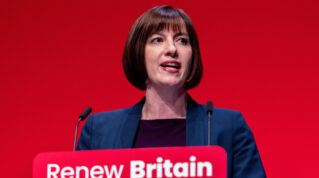Leaked reports of an STRB recommendation for a 6.5 per cent pay increase put Gillian Keegan embarrassingly on the back foot. Government have yet to publish the report, but if true it’s proof that they have so mishandled pay negotiations as to be out of step even with their own normally supportive independent School Teachers Review Body.
The figures speak for themselves, but the problem goes deeper. The government’s vague justification that “economic theory would suggest that potential recruits place extra weight on short-term salary offers rather than long-term progression” seriously under-estimates the impact of the past thirteen years.
The influential motivational theorist, Victor Vroom suggests that employees perform better if three conditions are met:
- expectancy (increasing effort will get the job done – with the right resources, skills and support/information);
- instrumentality (rewards for outcomes, trust that those administering rewards will deliver, and transparency of process);
- and valence (the right reward for the outcome).
Each condition has been contravened in the government’s conduct and implementation of pay settlements. The profession’s good will has been squandered.
Expectancy continues to deteriorate. Squeezes on school budgets have reduced resources. More buildings are in a dangerous state of disrepair. Continuing Professional Development remains variable. Teachers can no longer afford to subsidise their classes from their own pockets.
Lack of attention to valence is arguably even more damaging. Teachers’ vocation makes them more likely to care about the impact that a pay settlement out of over-stretched school budgets will have on their pupils, but teachers do not live by vocation alone. Pay is recognition of teachers’ role in society, compensation for the excessively long hours they work and economically necessary to pay the bills, including student loans.
The profession’s good will has been squandered
Valence is vital, but the most damaging aspect of government pay strategy, such as it is, is that even when pay settlements are reached there’s no guarantee that teachers will get them. This constant contravention of instrumentality means that the psychological contract between teachers and government is almost irretrievably broken.
The government claims that in 2022/23, teachers who progressed up the pay scale could see pay rises of up to 15.915 per cent from the combination of pay award and progression or promotion. But this case is only a remote possibility. Squeezed budgets could entail not paying the full increase, reducing promotion opportunities and redistributing the work to classroom teachers – all of which are detrimental to retention as the career ladder crumbles and workload increases.
The STRB themselves officially questioned the efficacy of performance-related pay progression (PRPP) as a good tool for distributing limited rewards as part of a flexible pay structure. They identified potential inequality in inconsistent approaches and found evidence that some groups benefit less from PRPP.
Imposing PRPP on the profession since 2013 has never been the right strategy. It’s impossible to isolate the elements of performance that are individual to teachers. Pupil progress is a synthesis of years of education from various sources. Outcomes are affected by factors outside pupils’ and teachers’ control. And forcing teachers to compete for rewards from a shrinking pool is a major cause of the exodus we are witnessing.
Meanwhile, teachers have traditionally accepted relatively low settlements in comparison with the private sector in the expectation that they will benefit from more generous pensions. But currently, one-third will have left the profession in the first five years. The attrition is around 6 per cent for those with at least ten years’ experience. Fewer of them expect to see this benefit.
The pension itself is constantly being changed, most recently in 2015 when higher earners paid more into the fund without necessarily getting more out. In 2022, the final salary scheme closed.
Facile reference to economic motivational theory cuts no ice. Far from being convinced, teachers and leaders have united in balloting for further industrial action, and now the STRB seems to have shifted its support towards the profession.
When she returns to the negotiating table, Gillian Keegan will have to consider not just how much she is willing to concede but how she will restore teachers’ motivation and their trust in the government’s willingness to properly compensate them.
















Your thoughts